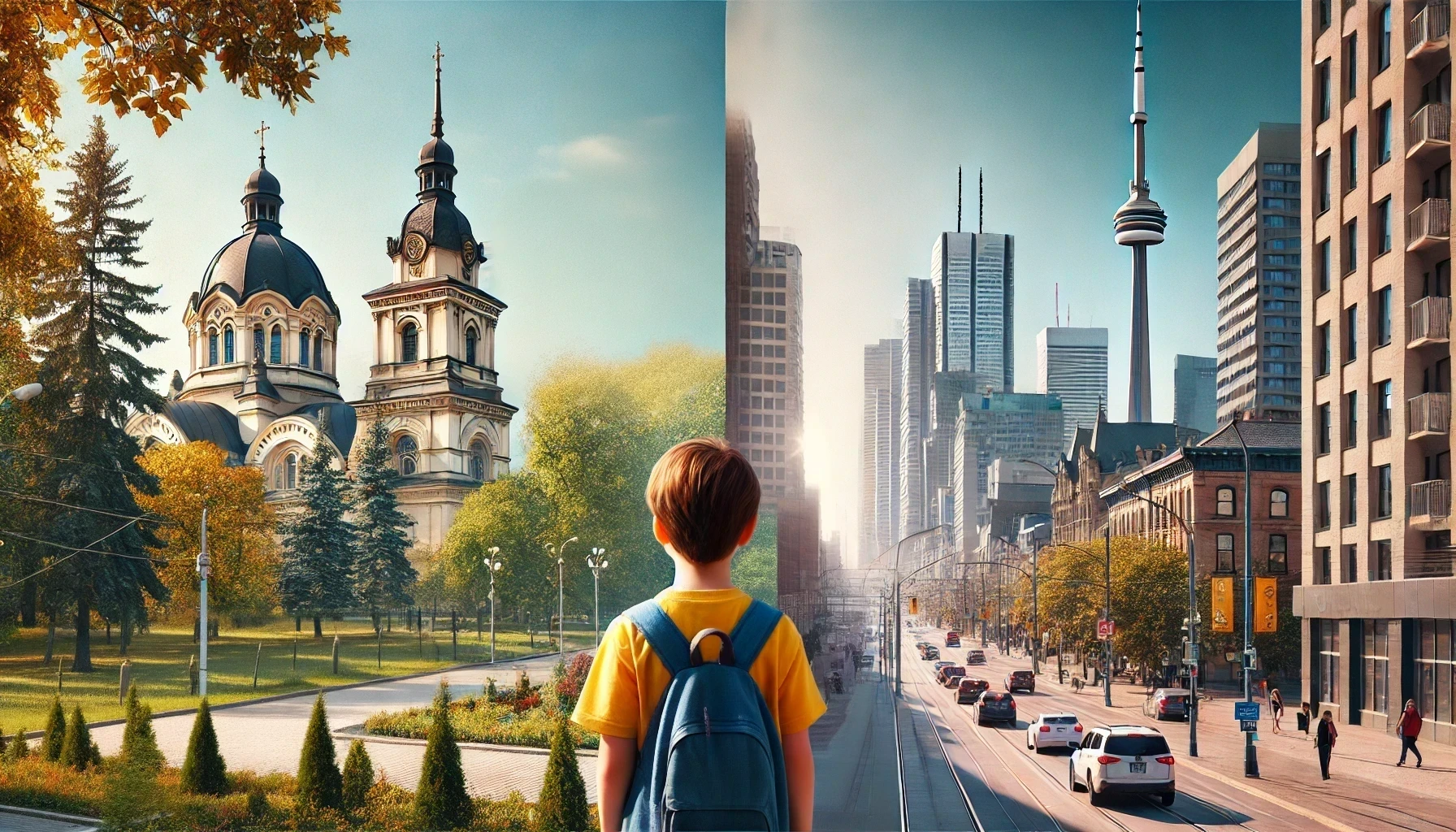Childhood in Moldova and Adulthood in Canada
4 minutes to read
I’ve been reflecting on how I view my life in Canada.
My family was working class for a large part of my childhood. For the first seven years of my life, we lived in a cramped 1-bedroom apartment and shared a kitchen with the entire floor. My father was an engineering professor at a local university and my mother was a merchant. She would buy clothes in Ukraine and sell them in Moldova at a public market called Talchiok. The neighbourhoods we lived in weren’t exactly childproofed, not that many soviet neighbourhoods were. By the time I was 10, I had two prominent scars running across my left eyebrow, a large 4-inch gash across my right palm and a tiny but deep cut in my cheek from the time an exposed metal hook bit into my skin as I ran past it. All of these scars were from playing regular games on irregular playgrounds.
My elementary school was a public school with many kids from difficult, but not uncommon backgrounds. My parents put me in taekwondo classes to learn to fend for myself. I fought a boy who tried to steal my soccer ball, I got challenged to a ‘strelka’ - a fight that happens after class where you’re surrounded by your classmates as you settle a score, I got jumped once on my way home and once in my classroom. I was good enough at Taekwondo that I fought in competitions and got medals. I did well enough in fights that bullies did not bother me again. But I was a reserved kid and fighting was always nerve-wrecking. On one of the last days of classes, they evacuated our middle-school because the whole building smelled like gas. A student got into an area they weren’t supposed to be in, twisted, turned, and pried open things they weren’t supposed to. There was a risk of explosion from all the gas so they let kids go home early. My parents moved us to a private school after that, even though it was extremely expensive and we could not afford it. The new school came with its own issues, but we got a significantly better education there and it never blew up so I guess it worked out.
In the summer, my sister and I would go to our grandparents who were farmers deep in the country-side. My grandpa would tell us stories about his own childhood: growing up during the second world war, the terrible things the soviets did to moldovan villages, and the famine, you would eat tree bark to survive and children often died of starvation.
Growing up in Moldova also had many beautiful and fun moments. In the summer at my grandparents’ I would wake up to the sound of roosters and the smell of morning dew. My grandpa taught me how to milk cows and take care of bees. I only got chased by a bull twice. I remember my cousin and I collected pounds of cherries from my grandma’s tress and tried to sell it by the side of the road. We didn’t understand the concept of market price so drivers just laughed and drove off when they heard our prices. Moldova is a very tradition-rich country. For winter holidays we would walk through the neighbourhood and sing Christmas Carols. During Easter we played egg-knock at the dinner table. You hold a painted hard-boiled egg, peacefully say “Christ has risen”, and violently smash your egg against your oponent’s. If their egg breaks, you win and challenge the next person. The last person around the table with a whole egg wins. We don’t talk about the year my sister painted over a wooden egg. During international children’s day my mom would take my sister and I to the carnival with rides that have crippled more than one person over the years, but as kids, it was always fun.
All that is to say, Moldova provided me with many fulfilling and rich childhood memories, but it also had tough, difficult moments that often only a developing country can provide. And I’ve had a relatively privileged life in Moldova. I lived in the capital, in high school I studied at one of the country’s best schools, my dad’s business eventually picked up and we were able to have a much nicer house where I had my own room, nicer vacations and best of all, less financial stress.
Where am I going with this?
When I view my middle-class life in Canada, I am happy and content.
When I go about my daily life, my early experiences are my reference point. The reference point is many of my classmates smoking when they were only twelve, many of my friends being raised by their grandparents’ because their parents had to work abroad and send money back home. My reference point is decaying houses in empty villages, cities filled with five-story brutalist boxes devoid of any colour or soul, old people freezing in their homes in December because they couldn’t afford the electricity bills, and stray dogs chasing me on my way home from the grocery store. I think those experiences are a gift I will always be grateful for. Because they made me resilient. And I hope I always remember them.
How can I not be happy now? How can I not be grateful and content with the life I have now when I’ve seen what it can be?